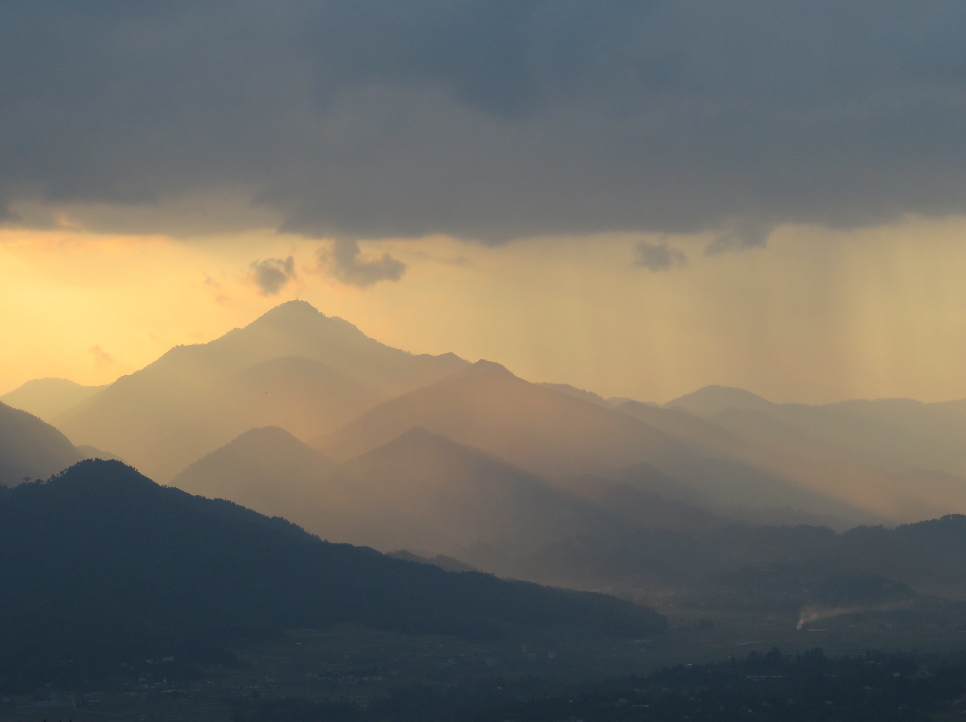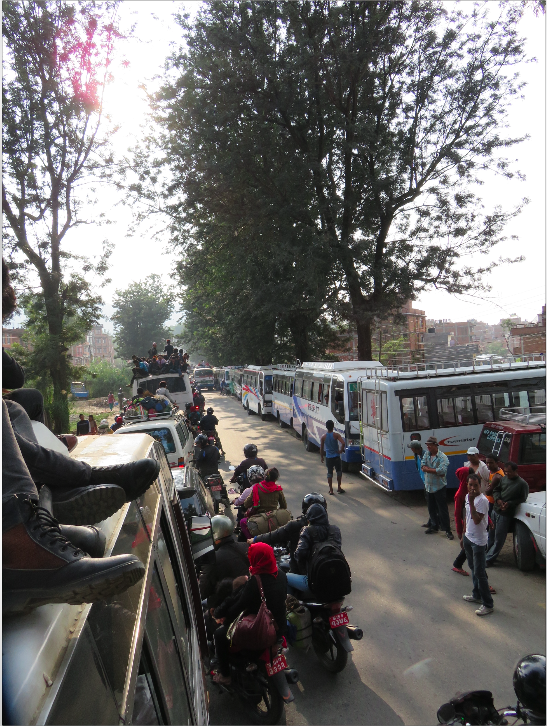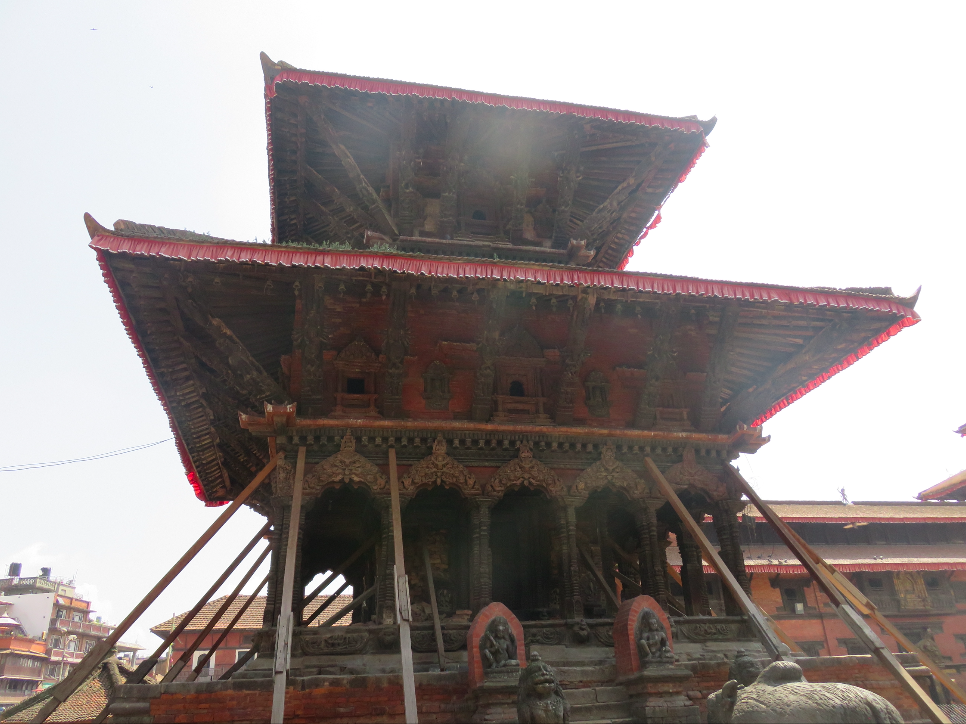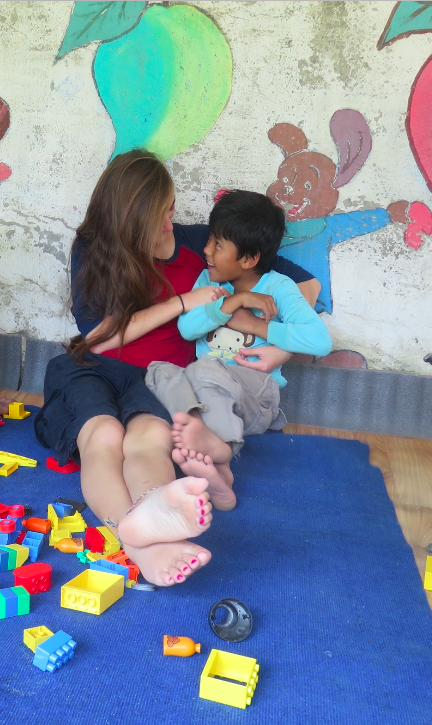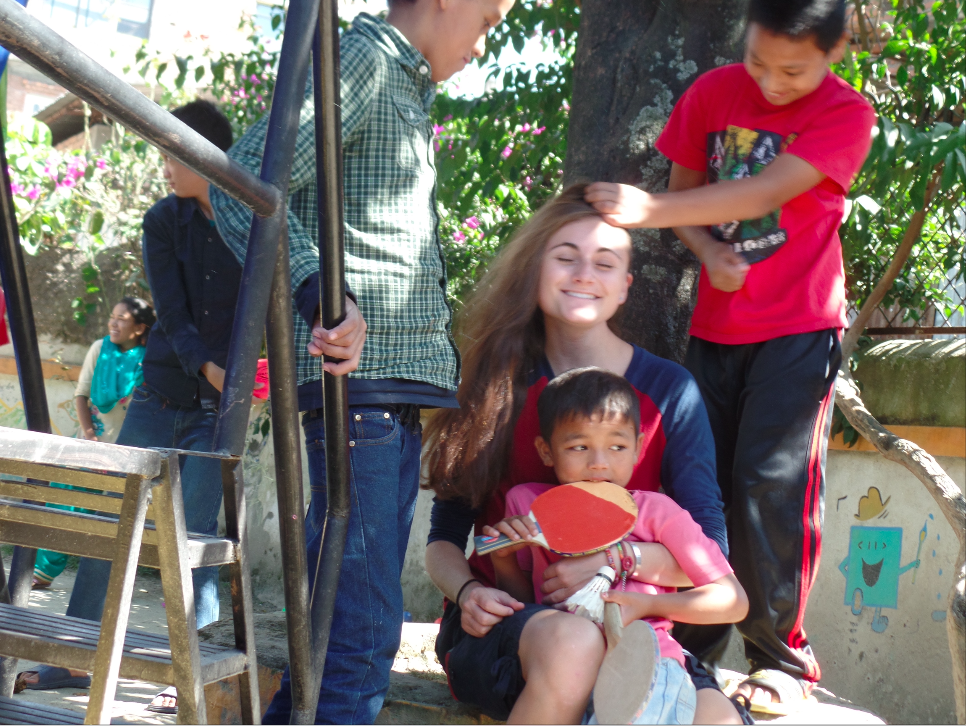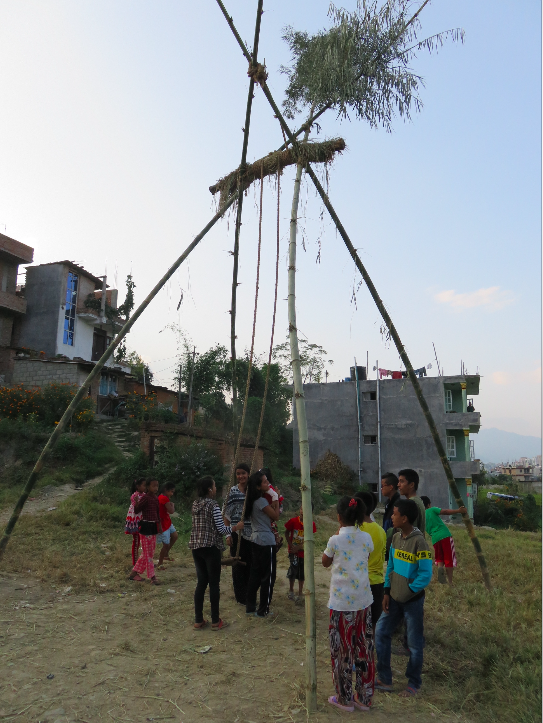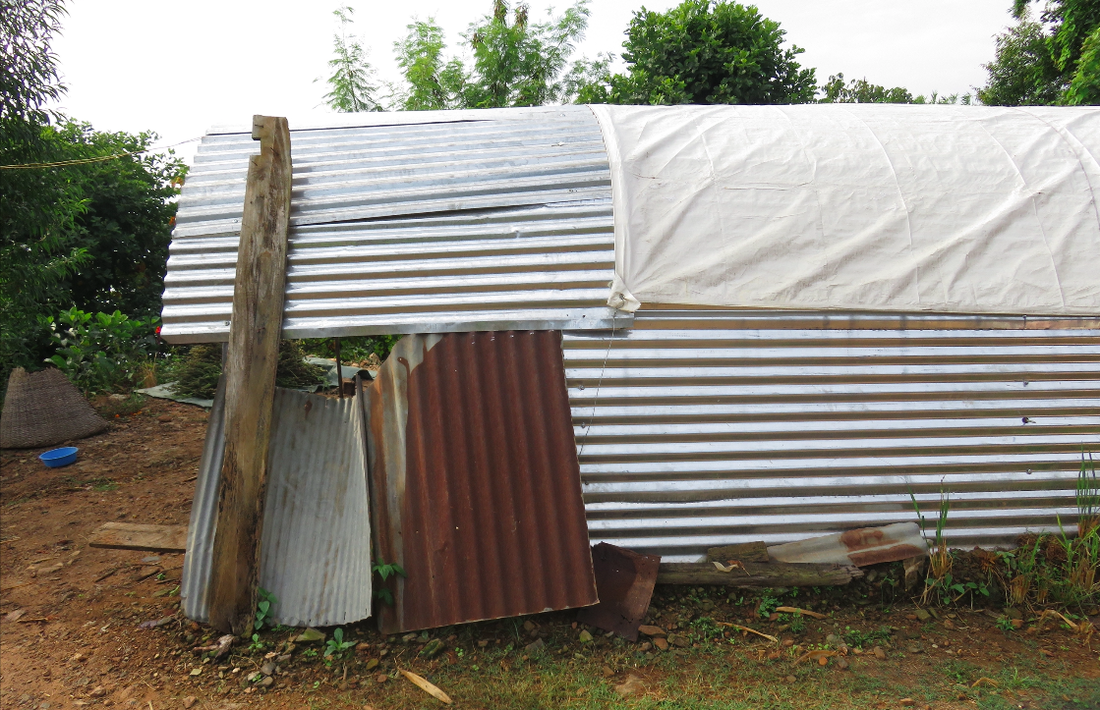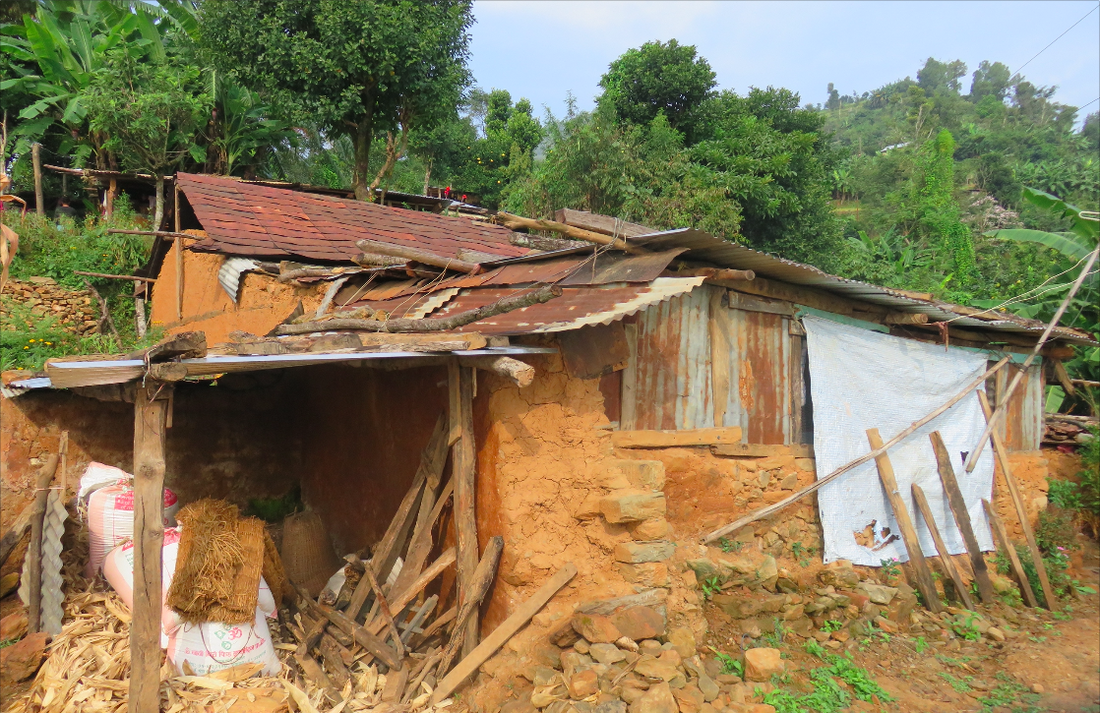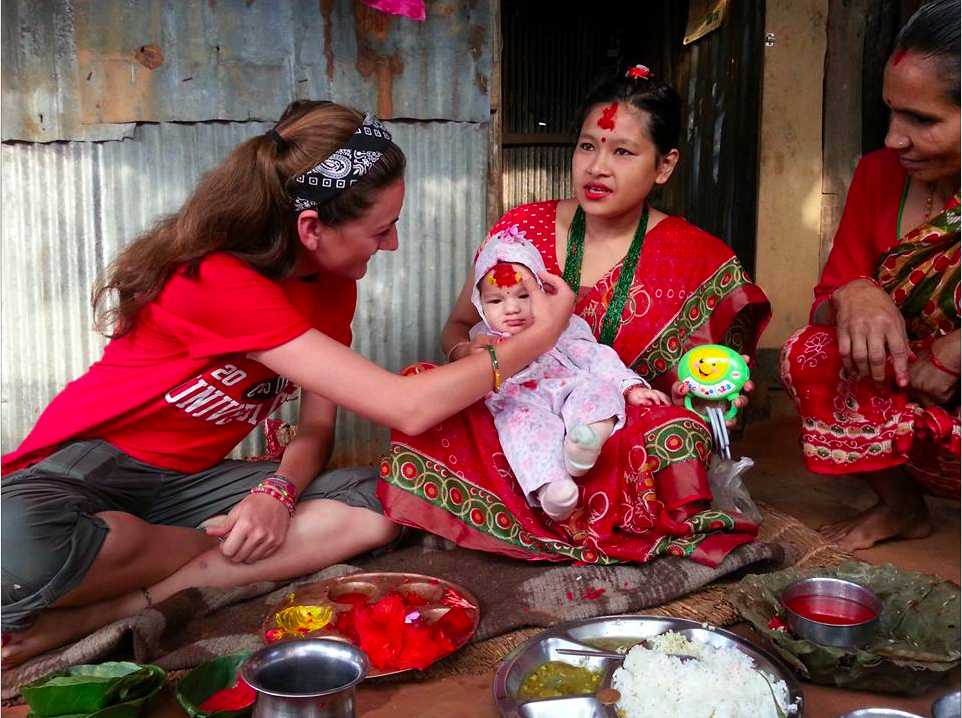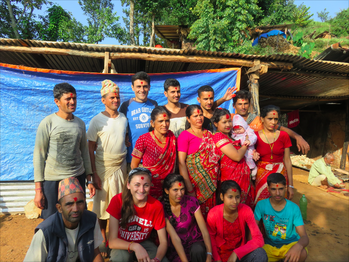| Following the 7.8 Richter scale earthquake that devastated Nepal on April 25th, the Nepali government focused its attention on completing a new constitution. It has been promised since the culmination of a decade long civil war between the Maoists and government forces in 2006. Joy overcame most of the nation in late September with its long-anticipated promulgation. However this joy soon dissolved as India instituted an "unofficial blockade" in response. Nepal, a landlocked country bordered on three sides by India and one side by China, relies heavily on its southern neighbor for imports to keep the country going. Although it is exciting that the Nepali government finally came through with a new constitution, it is clear that the document has its drawbacks. Many are concerned with the lack of rights granted to women and various minority groups, along with other grievances such as the break up of individual states. For the last two months Nepal's southern border has been a site for conflict and unrest, resulting in deaths on both sides. The Terai region in the south is home to Madhesi and Tharu people who have been striking for three months now in response to the constitution. These groups are unofficially supported by India and their combined efforts have created a humanitarian crisis for the rest of Nepal. India denies there is a blockade—but with the severe lack of supplies entering the country—no one is buying it. The embargo has had effects on just about everyone living in Nepal. People have to wait in line for up to three or four days just for a few liters of diesel or petrol. Systems were implemented to have even number plates on the roads one day and odd plates the next. Hindi television was even banned for a day. Prices for food and transportation have increased dramatically. Small businesses such as restaurants can't offer their usual items, and people have run out of gas and must find alternative methods of cooking food. Schools and other institutions have had to close as they can't provide food and transportation. After all the trauma that Nepali people have already faced this year as a result of earthquakes, aftershocks, and landslides, it seems unfathomable to me that the Indian government would institute a traditional war tactic as a political move. It is a busy time for Nepal. The big holiday season is here with Dashain and Tihar, and a new Prime Minister has been been elected. It is also the annual high tourist season where Nepal's economy is boosted through an influx of people coming from other countries to go on treks and experience the various landscapes of Nepal. But with the shortage of fuel and all the accompanying effects the blockade has had, the tourist industry has been hit hard. The monsoon season is over and people would have been able focus their attention to rebuilding homes, schools, businesses, and places of worship, but now the blockade has prevented this from happening and has become the main focus here. The blockade has highly affected my time in Nepal as well. After spending my first few days in Kathmandu visiting cultural sights such as Bodhnath and Patan, I was supposed to head to Harkapur to start helping people rebuild their homes. With the shortage of petrol it was too hard to get there, so instead I spent the following few weeks on a childcare project. Although I hadn't planned on volunteering at a daycare center in Nepal, I am so glad that I've had the opportunity to do so. I was placed at Maitri Griha, a care center for children who have Autism and Down Syndrome. I have never before worked with people who are differently abled, and it was one of the most amazing experiences of my life. The children are bright, intelligent, friendly, and incredibly happy. They greet volunteers and care providers with smiles and hugs and they have a kind of innocence I've never before experienced. I spent time with each kid and tried to better understand the severity of their conditions. We worked on dexterity through coloring and sewing, we challenged them with puzzles and writing exercises, and we played with them on the swings and with legos. The kids at Maitri Griha taught me about much more than just their conditions. They taught me patience, selflessness, and a new sense of family, in which I am their "Didi," or sister. Due to the lack of petrol, Maitri Griha resorted to opening every other day. However soon enough it had to close completely, as there was no petrol to pick the kids up and drop them off each day. As a result I again had to be flexible in my plans. I spent a few days visiting Pashupatinath, the most holy place in Nepal for Hindus, and traveled to Nomobuddha monastery with my friends to catch a glimpse of life there for Buddhist monks. Then I traveled with a head of the organization I am volunteering for and his family to the village of Harkapur. Going to Harkapur ended up being one of the most remarkable experiences of my entire life. I have never met a more welcoming and loving community of people than those living in Harkapur. From the moment I entered the village I was greeted with tea from each family, offered accommodation, and received an abundance of questions and compliments. My Harkapur family quickly became like my own family. They welcomed me into their culture, their language, their home. Their generosity was so sincere that it reduced me to tears on multiple occasions. Village life is magnificent. People are hard at work before the sun even rises. They are tending to the fields and the animals and preparing the first meal of the day while I’m still struggling to keep my eyes open. Nothing gets wasted—we eat the crops, the dried crops get fed to the cows and bulls, and their feces provides fuel for the house. The sense of community in Harkapur is overwhelming. Each family cooks and takes care of their own property, but when there's downtime everyone comes together with contagious laughter and beaming faces. Harkapur was a sort of cleansing from the life I had been living in Kathmandu. There is nothing like waking up every morning, walking right outside, and drinking tea made from the milk of a buffalo as I look into its eyes and over at the mountain view in front of me. It reminded me of the importance of family and the negligence of the material goods that have become a central part of many of our daily lives. After all, who needs alternative forms of entertainment when you're being woken up at four am by the sounds of your neighbors screaming at monkeys to chase them off their crops. In Harkapur I was able to join my family in the beginnings of their celebration of Dashain, Nepal's biggest festival. I was greeted each morning with a puja and tika, and watched my family plant the seeds that would grow into jamara, or grass, and be harvested on the tenth day and worn by Nepalis all over the country. I also gave some love to the village goats that would be beheaded and eaten during the second week, providing people with a large protein intake before the winter months. I went to a Brahmin wedding taking place in the village, and I participated in a feeding ceremony where Nepali babies are fed solid food for the first time. Leaving Harkapur after having such magnificent experiences was very difficult for me. Although no one there was injured in the earthquakes, their area was greatly affected. The hospital and school are in ruins and many houses have been reduced to piles of rubble. Those in Harkapur have put up temporary shelters until rebuilding can take place. Although they aren't ready to rebuild yet—when they are—I hope I can give back to them like they've given to me, even if it's just a little bit. As we walked down the mountain with flowers from the villagers in our hands, I was overwhelmed with the compassion I had experienced so far in Nepal. Natural disasters and political unrest may damage the nation, but it will never hinder the love that Nepali people foster. |
